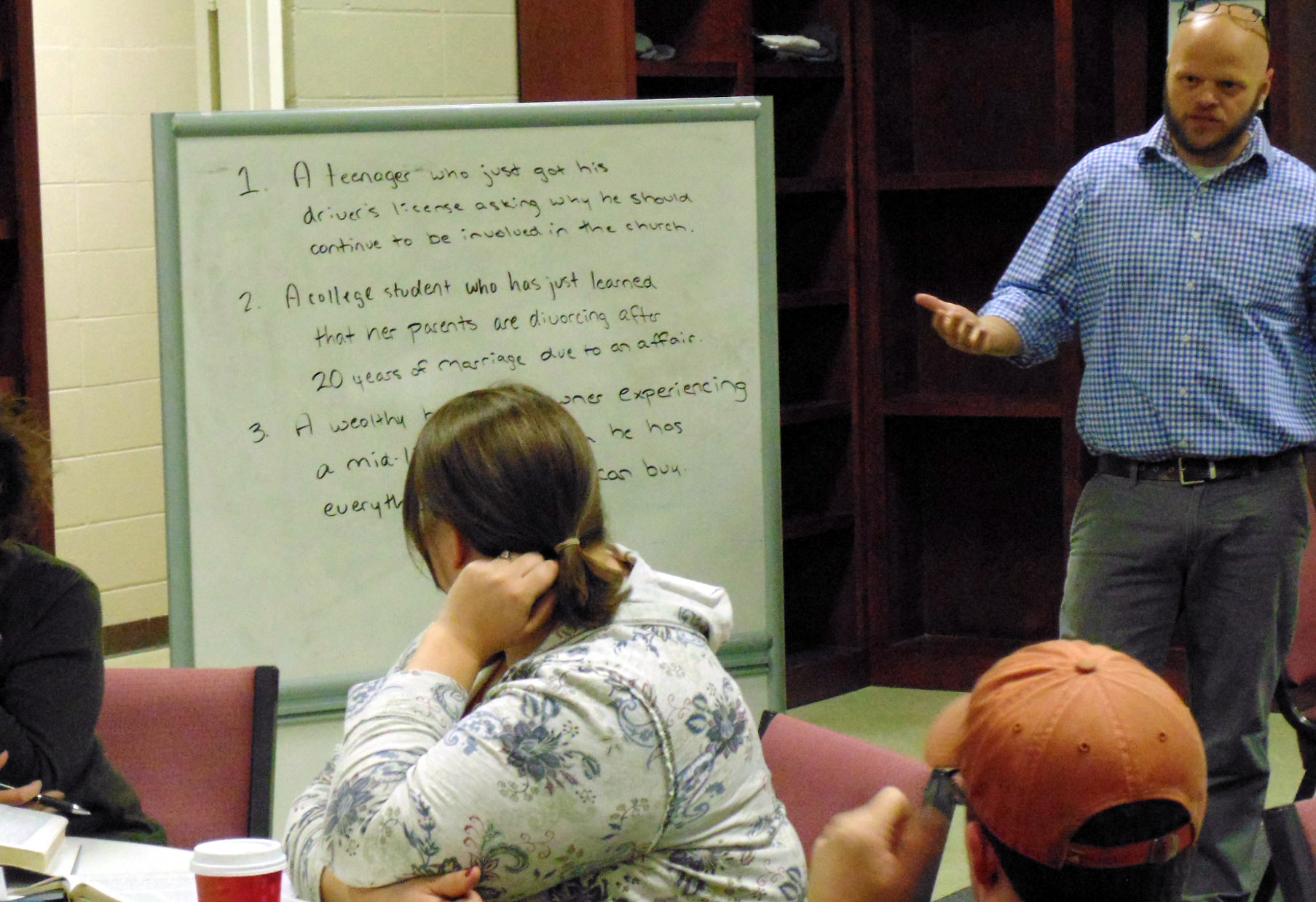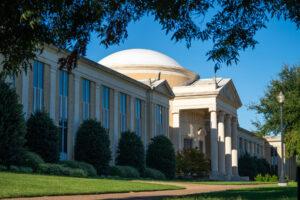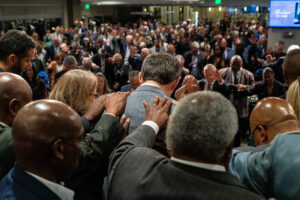
WAKE FOREST, N.C. (BP) — Matt Rogers knows from experience how important preparation and mentoring are for a young church-planter-to-be.
After Rogers came to Christ at age 19 and was preaching by age 20, he spent the first decade of his Christian life serving Jesus passionately but struggled to understand and prepare for his calling. It wasn’t until he entered Southeastern Baptist Theological Seminary in 2005 that he began to gain a deeper sense of the Gospel and the part God wanted him to play in sharing it.
 When he started The Church at Cherrydale in 2009, God used Rogers’ background to develop a key role for him in equipping the next generation.
When he started The Church at Cherrydale in 2009, God used Rogers’ background to develop a key role for him in equipping the next generation.
“I wanted to create a healthy church that was making disciples and reaching the lost but also would grab young guys who were in the situation that I was in,” said Rogers (@mattrogers_).
Through a partnership with Southeastern Seminary in Wake Forest, N.C., The Church at Cherrydale in Greenville, S.C., is living out that initial vision. The church currently has students who are participating in a two-year program to pair theological education from the seminary and on-the-job training from the church.
“We have a vision to partner with churches that are training leaders,” said pastoral ministries professor Steven Wade, director of Southeastern’s field ministry program. Under SEBTS President Daniel Akin’s leadership, an initiative called EQUIP was launched.
Wade described EQUIP as “an arm of Southeastern Seminary where we partner with local churches, training leaders for the church and specifically for church planters to go out and plant churches. We want to come in and evaluate what a church is doing and how it is training leaders and see how much academic credit the student may earn for that training as a pastor and a church planter.”
NAMB is discussing similar partnerships with other SBC seminaries.
Currently Southeastern is partnering with more than 200 churches to do this — on a variety of levels — from churches that do a basic three-hour field ministry course to others where students complete 18 hours or more in the church context.
Southeastern’s focus on church-based training complements a growing interest at the North American Mission Board to develop churches that plant multiple churches.
“One group that is particularly interested in conducting these internships is church planters,” Wade said, impressed that “those guys who are out there planting churches, within the first year or two, are really interested in training more pastors, more church planters.”
NAMB created a three-fold developmental framework with Southeastern to develop the next generation of North American missionaries, emphasizing local church involvement:
— Gospel is the theological framework that centers on the death, burial and resurrection of Jesus and includes both the salvation and sanctification of believers.
— Mission includes the missiological formation that is birthed from the understanding that believers in Christ are sent, just as Jesus was sent.
— Ministry encompasses the ever-changing practical application that flows from the foundation of the unchanging Gospel and proper missiological formation.
The three-fold framework has provided a structure to help in the training process at The Church at Cherrydale and other churches through Southeastern. The seminary’s master of arts in church planting degree, in fact, flowed directly from conversations with NAMB on the three-fold framework. Through a series of guided field-ministry experiences and practicums, students can earn up to 18 hours of the 36-hour MACP degree through the EQUIP network of churches.
“The more we can partner back with the local church on theological education to where the theological education and the practical application of ministry can be done in context of the local church the more we all win,” said Dustin Willis, NAMB’s team leader for Send North America events.
Willis said the seminary wins “when they help equip the local churches to do that. NAMB wins when we help equip the churches to live out that mission. It’s a great partnership because the local churches are the reason for it.”
Using this framework, Southeastern has categorized required classes in theology, biblical studies and history fitting under “Gospel”; training centered on personal calling and missions categorized under “Mission”; and practical classes on evangelism, pastoral ministry and other areas explored under “Ministry.” The framework ensures that students will get a balanced theological education that prepares them for ministry in the 21st century.
“We really want to put all three of those pieces together,” Wade said. “If you miss one of them, then you have missed a full comprehensive theological education. You have to have a theological foundation, but if you have that without a sense of mission and how to do it, then you’ve failed. If you don’t have a theological foundation and you say, ‘Here’s how you do ministry,’ then ministry becomes empty.”
Rogers said the three-fold framework has helped provide the young leaders he is raising up with a balanced development process.
“Leadership development is a really cool, vogue concept right now,” Rogers said. “You want to be a church that’s developing leaders. You don’t want to do it with a blank slate. Through this framework, we’re starting with a paradigm that we want to work a leader through.”
Explore more about individual and church development through www.namb.net/mobilize-me.















